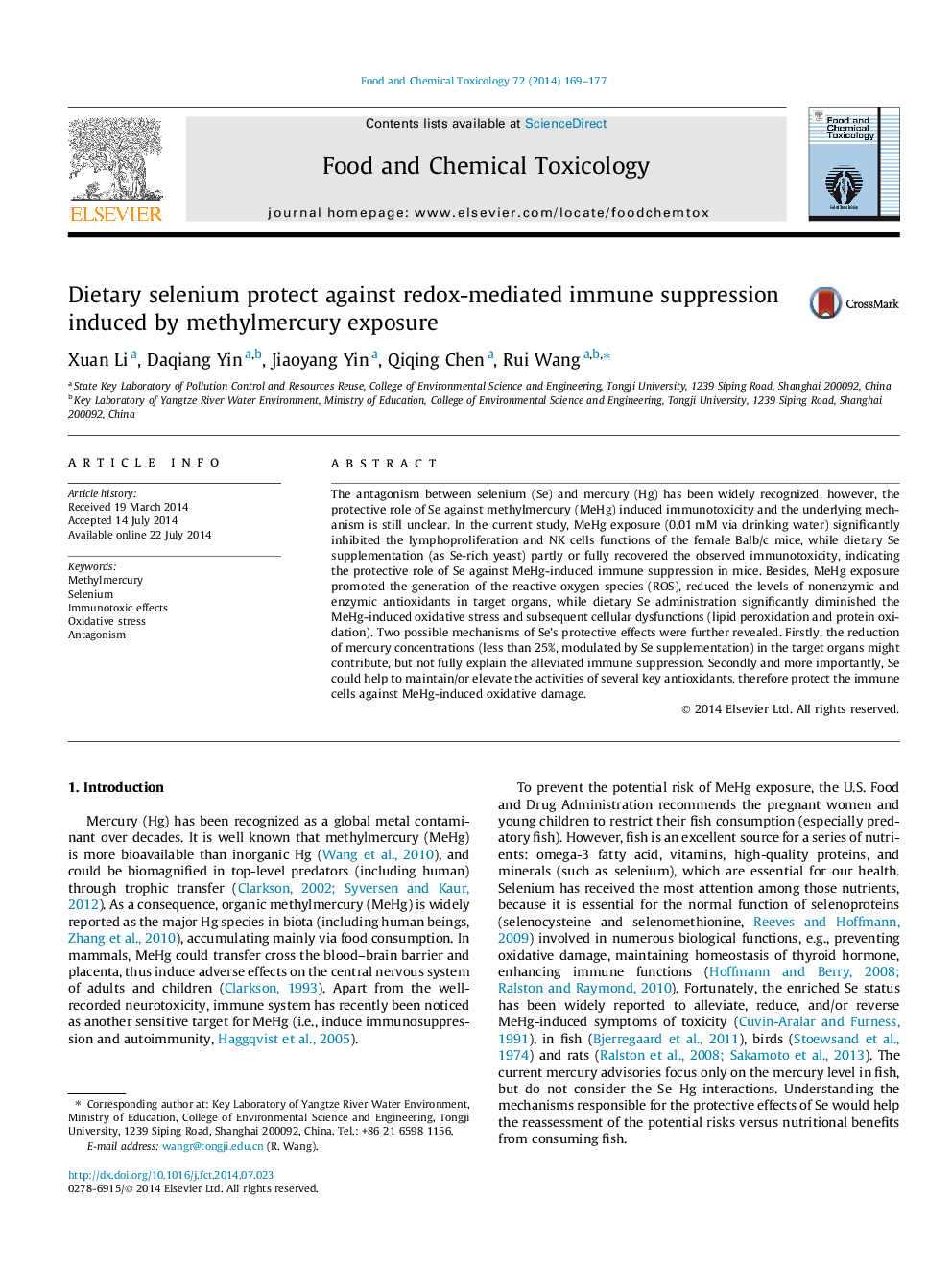| Article ID | Journal | Published Year | Pages | File Type |
|---|---|---|---|---|
| 2585002 | Food and Chemical Toxicology | 2014 | 9 Pages |
•MeHg exposure via drinking water inhibited the lymphoproliferation and NK cells activity in mice.•Dietary selenium supplementation showed protective effects on MeHg-induced immunosuppression and oxidative stress.•Dietary selenium reduced the total mercury concentrations in the immune organs (spleen and thymus).•Selenium protect against MeHg-induced immunotoxicity mainly via preventing immune cells from oxidative damage.
The antagonism between selenium (Se) and mercury (Hg) has been widely recognized, however, the protective role of Se against methylmercury (MeHg) induced immunotoxicity and the underlying mechanism is still unclear. In the current study, MeHg exposure (0.01 mM via drinking water) significantly inhibited the lymphoproliferation and NK cells functions of the female Balb/c mice, while dietary Se supplementation (as Se-rich yeast) partly or fully recovered the observed immunotoxicity, indicating the protective role of Se against MeHg-induced immune suppression in mice. Besides, MeHg exposure promoted the generation of the reactive oxygen species (ROS), reduced the levels of nonenzymic and enzymic antioxidants in target organs, while dietary Se administration significantly diminished the MeHg-induced oxidative stress and subsequent cellular dysfunctions (lipid peroxidation and protein oxidation). Two possible mechanisms of Se’s protective effects were further revealed. Firstly, the reduction of mercury concentrations (less than 25%, modulated by Se supplementation) in the target organs might contribute, but not fully explain the alleviated immune suppression. Secondly and more importantly, Se could help to maintain/or elevate the activities of several key antioxidants, therefore protect the immune cells against MeHg-induced oxidative damage.
